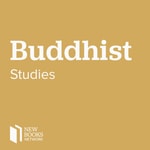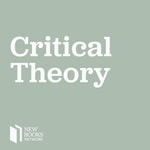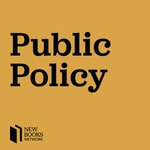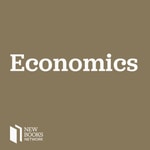New Books in Law – Details, episodes & analysis
Podcast details
Technical and general information from the podcast's RSS feed.
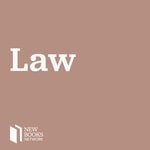
New Books in Law
New Books Network
Frequency: 1 episode/4d. Total Eps: 1728

Recent rankings
Latest chart positions across Apple Podcasts and Spotify rankings.
Apple Podcasts
🇺🇸 USA - socialSciences
27/07/2025#70🇺🇸 USA - socialSciences
26/07/2025#72🇺🇸 USA - socialSciences
25/07/2025#93🇺🇸 USA - socialSciences
24/07/2025#95🇺🇸 USA - socialSciences
22/07/2025#90🇬🇧 Great Britain - socialSciences
14/07/2025#72🇬🇧 Great Britain - socialSciences
13/07/2025#46🇫🇷 France - socialSciences
13/07/2025#95🇫🇷 France - socialSciences
12/07/2025#82🇫🇷 France - socialSciences
11/07/2025#72
Spotify
No recent rankings available
Shared links between episodes and podcasts
Links found in episode descriptions and other podcasts that share them.
See all- https://www.sensorylogic.com
245 shares
- https://twitter.com/sraab18
19 shares
- https://twitter.com/PriyamSinha
13 shares
RSS feed quality and score
Technical evaluation of the podcast's RSS feed quality and structure.
See allScore global : 59%
Publication history
Monthly episode publishing history over the past years.
Joanna Wuest, "Born This Way: Science, Citizenship, and Inequality in the American LGBTQ+ Movement" (U Chicago Press, 2023)
Episode 731
mardi 27 août 2024 • Duration 57:20
Damaging Rationality: Exxon-Funded Legal Research and the Exxon Valdez Oil Spill
Episode 67
dimanche 25 août 2024 • Duration 01:13:50
Shaun S. Yates, "Over-Efficiency in the Lower Criminal Courts: Understanding a Key Problem and How to Fix it" (Policy Press, 2024)
Episode 229
samedi 17 août 2024 • Duration 46:37
Robert Louis Wilken, "Liberty in the Things of God: The Christian Origins of Religious Freedom" (Yale UP, 2019)
Episode 50
mardi 20 février 2024 • Duration 01:02:49
Christopher Robertson, "Exposed: Why Our Health Insurance is Incomplete and What can be Done About" (Harvard UP, 2019)
Episode 89
lundi 21 septembre 2020 • Duration 51:02
Zuraidah Ibrahim, "Rebel City: Hong Kong's Year of Water and Fire" (World Scientific, 2020)
Episode 99
lundi 21 septembre 2020 • Duration 45:24
Debjani Bhattacharyya, "Empire and Ecology in the Bengal Delta: The Making of Calcutta" (Cambridge UP, 2019)
Episode 10
lundi 21 septembre 2020 • Duration 01:03:48
Christopher Marquis, "Better Business: How the B Corp Movement Is Remaking Capitalism" (Yale UP, 2020)
Episode 44
lundi 21 septembre 2020 • Duration 38:08
Jonathan Robinson, "Rights at the Margins: Historical, Legal and Philosophical Perspectives" (Brill, 2020)
Episode 83
vendredi 18 septembre 2020 • Duration 01:33:22
Alexander Keyssar, "Why Do We Still Have the Electoral College?" (Harvard UP, 2020)
Episode 469
jeudi 17 septembre 2020 • Duration 52:18
